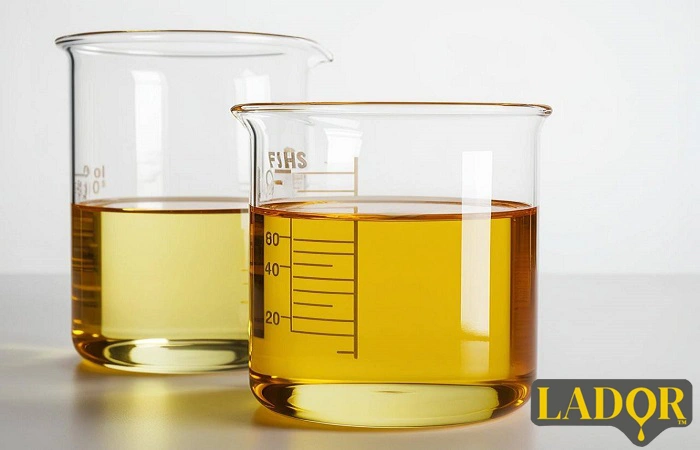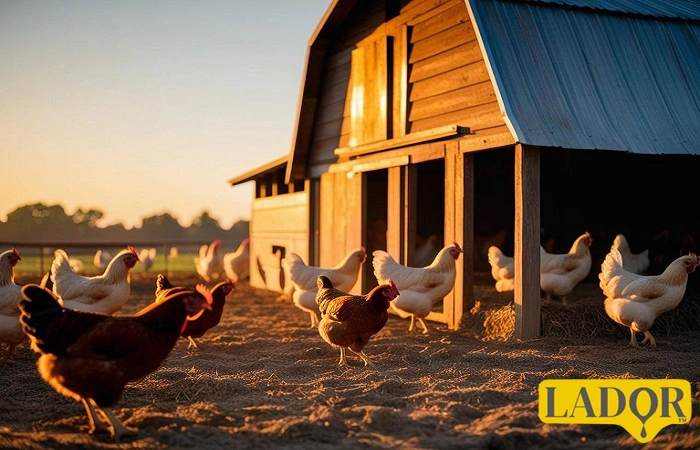Hydrogenated chicken Oil is a type of fat produced from chicken oil through a process called hydrogenation. In this process, liquid chicken oil is converted into solid or semi-solid fat using hydrogen and a catalyst (typically nickel). In the rest of this article, we intend to fully introduce you to hydrogenated chicken oil.
Production Process of Hydrogenated Chicken Oil
- Obtaining Chicken Oil: Chicken oil is derived from the fatty tissues of chickens, usually during poultry meat processing.
- Refining: The extracted fat is refined to remove impurities and extra materials.
- Hydrogenation: The liquid chicken oil is mixed with hydrogen gas and a nickel catalyst at specific temperatures and pressures. In this chemical reaction, the double bonds in unsaturated fatty acids are broken, and single bonds with hydrogen are formed in their place. This action increases the melting point and changes the state of the oil from liquid to solid or semi-solid.
- Stabilization: The hydrogenated oil is stabilized to prevent unwanted changes in its quality and stability.
Advantages of Using Hydrogenated Chicken Oil
Increased Stability:
Hydrogenation increases the fat’s resistance to oxidation and spoilage. This enhances the product’s shelf life.
Texture and Consistency:
Hydrogenated chicken fat can provide desirable texture and consistency to products like margarine, frying oils, and baked goods.
Flavor and Aroma:
In some cases, this fat can impart a specific flavor and aroma to products.
Cost-Effective:
Hydrogenated chicken fat is less expensive compared to some other vegetable oils.

Disadvantages and Effects of Hydrogenated Chicken Oil
- Trans Fats: One of the biggest drawbacks of hydrogenated fat is the presence of trans fats. Consumption of trans fats is associated with an increased risk of cardiovascular diseases, elevated bad cholesterol (LDL), and reduced good cholesterol (HDL).
- Digestive Problems: Excessive consumption of hydrogenated fat can cause digestive issues like indigestion and bloating.
- Nutrient Deficiency: Hydrogenated fat lacks many of the nutrients found in natural vegetable oils.
- Effects on Poultry: The use of hydrogenated fat in poultry feed can also have negative effects. Some studies have shown that consuming hydrogenated fats can lead to reduced growth, decreased egg production, and impaired immune systems in poultry.
Comparison with Other Chicken Oils
- Refined Chicken Oil: This oil is extracted from chicken fat and refined, but it does not undergo the hydrogenation process. Therefore, it remains in a liquid state and has lower oxidative stability compared to hydrogenated chicken fat.
- Crude Chicken Oil: This oil is extracted from chicken fat and is not refined. Therefore, it contains impurities and extra materials and has very low oxidative stability.

Important Points Regarding Hydrogenated Chicken Oil
- Labeling: In many countries, manufacturers must state the amount of trans fat on food product labels.
- Alternatives: Today, there are healthier alternatives to hydrogenated fat, such as unsaturated vegetable oils (like olive oil, canola oil, and sunflower oil) and natural animal fats.
Summary
Hydrogenated chicken Oil is used in some food industries due to its high stability and low price. However, due to the presence of trans fats and their negative effects on human and poultry health, their consumption should be limited. Using unsaturated vegetable oils and natural animal fats as healthier alternatives is recommended.
Aela Oil Sepahan Company, under the brand name Ladorfat, produces and markets all industrial, livestock, and poultry oils with years of experience. Some of the products of this company are sunflower oil and chicken oil, tallow fatty acid, raw materials for preparing quail feed, etc. For more information, contact our consultants at Lador.



